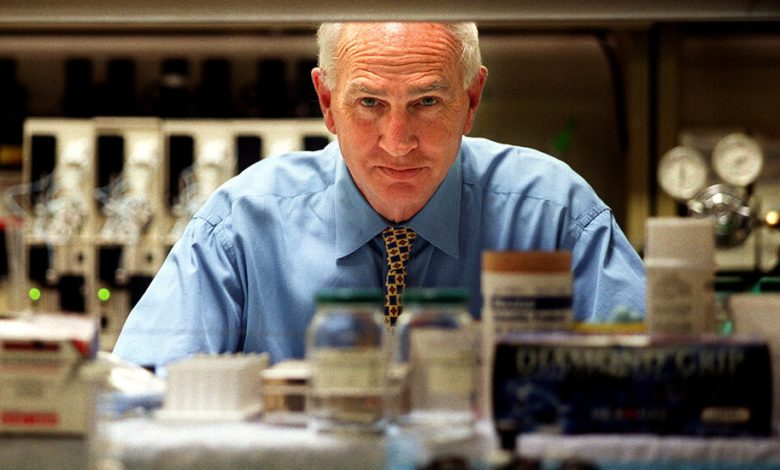Don Catlin, Who Ran an Elite Antidoping Laboratory, Dies at 85

Dr. Don Catlin, who built the first U.S. antidoping laboratory, and whose research unlocked the chemistry behind numerous previously undetectable performance-enhancing drugs and snared athletes who cheated by using steroids and other banned substances, died on Jan. 16 at his home in Los Angeles. He was 85.
His son Oliver said the cause was a stroke. He also said his father had been diagnosed with dementia.
Dr. Catlin, who was sometimes called the father of drug testing in sports, was the director of the U.C.L.A. Olympic Analytical Laboratory, which he started two years before the 1984 Summer Olympics in Los Angeles and led until 2007.
Over time, his lab tested as many as 45,000 urine specimens a year, looking for traces of banned substances in U.S. Olympians; professional football players; collegiate and minor league baseball players; and competitors at one FIFA World Cup.
“He was a towering legend,” Travis T. Tygart, chief executive of the United States Anti-Doping Agency, said in an interview. “His charm and stature in meetings of scientists and nonscientists let him explain complicated science to sports folks and then put on his lab coat and work on carbon isotope ratio analysis.”
Dr. Catlin’s quarter-century at the lab coincided with a period of drug scandals in the sports world, including one involving the Canadian sprinter Ben Johnson, who was stripped of his gold medal in the 100-meter race at the 1988 Summer Olympics in Seoul after he tested positive for the anabolic steroid stanozolol.
We are having trouble retrieving the article content.
Please enable JavaScript in your browser settings.
Thank you for your patience while we verify access. If you are in Reader mode please exit and log into your Times account, or subscribe for all of The Times.
Thank you for your patience while we verify access.
Already a subscriber? Log in.
Want all of The Times? Subscribe.
